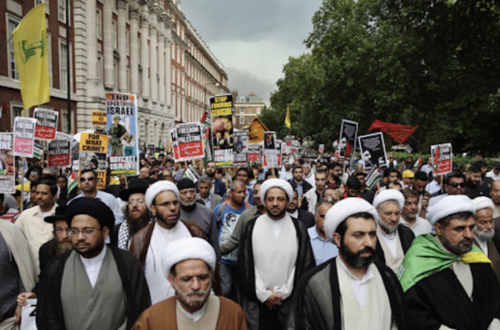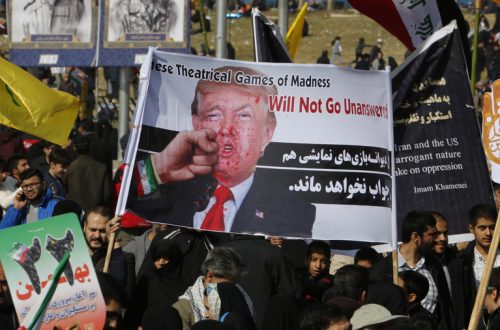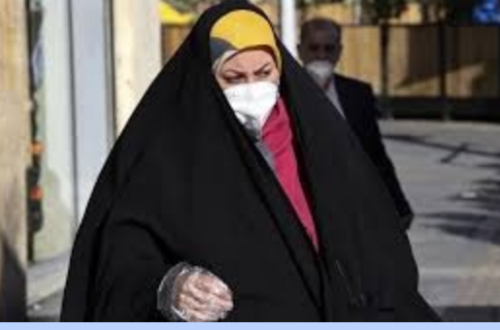This is a guest post by Judy at Adloyada
The Iranian regime has announced that it’s using its police apparatus and Interpol to go after Dr Arash Hejazi.
Why?
He spoke out on the BBC about his experience of witnessing the murder of Neda Aga-Soltan at close quarters, and trying in vain to use his medical skills to save her. What’s more he spoke of seeing the outraged crowd of protesters capture the Basiji thug who fired the shot, the Basiji’s cries that he “didn’t mean to kill her”, and the crowd’s having disarmed him and let him go.
Arash Hejazi’s dramatic interview includes his fears of how the Iranian regime will respond to his testimony. “They will put all sorts of things on me,” he says–it’s about seven minutes into this clip. He knows he is now a marked man.
Of course, there are at least two versions of every story, so let’s look at today’s line from Iran’s Chief of Police, helpfully and uncritically reported in The Guardian:
Iran’s police chief, Brigadier General Ismail Ahmadi-Moghaddam, said 1,032 people had been arrested since the 12 June election, but he claimed that most had since been released.
“Those who are still in detention were referred to the public and revolutionary courts in Tehran,” Fars News Agency quoted him as saying, according to Reuters.
Ahmadi-Moghaddam said 20 “rioters” had been killed during the unrest and more than 500 police had been injured.
He also asked Interpol to arrest Arash Hejazi, the doctor who was filmed coming to the aid of Neda Soltan after she was shot in the widely seen video of her death.
Hejazi fled to London after the incident and suggested that a Basij militiaman on a motorbike was responsible for her killing.
“Her killing was a planned scenario and had no relation with the riots in Tehran,” Ahmadi-Moghaddam said.
You don’t have to look far to work out what story the Iranian regime is going to try and lay on Arash Hejazi. Here’s Ahmadinejad’s version of what happened as put out on the Iranian propaganda tool, Press TV:
The massive propaganda of the foreign media, as well as other evidence, proves the interference of the enemies of the Iranian nation who want to take political advantage and darken the pure face of the Islamic republic,” he said in a letter to Shahroudi, according to the news agency.
The letter comes a day after Iran’s government-backed Press TV said Agha-Soltan did not die the way the opposition claims.
Two people told Press TV there were no security forces in the area when she was killed.
And the network said the type of bullet that killed her is not used by Iranian security forces.
A man who told the network that he had helped take her to a hospital said, “There were no security forces or any member of the Basij” paramilitary present when she was killed.
The Guardian’s version makes it look as if Dr Arash Hejazi ran away. In fact, Arash Hejazi is currently based in England in order to pursue a postgraduate degree at the Oxford Brookes University in publishing; he was on a visit to Tehran when, like Neda Soltan, he landed up on the scene of the shooting during the course of one of the biggest street protests against the declaration of the faked results of the Iranian election.
The Guardian also fails to tell its readers about Arash Hejazi’s background as an award-winning writer and publisher. I would have linked you to his excellent website, which documents his writing and those of democracy activists both in and beyond Iran. But it was based on an Iranian ISP, and in the last few days, it’s been taken down. What a surprise.
But you can still find a good account of Arash’s extraordinary and impressive achievements on his Wikipedia page. There’s a telling account by him of the impact of the Iranian regime’s censorship method here.
It’s a shame that the Wikipedia page doesn’t carry the information which was on his now vanished website about the last time he was in trouble with the Iranian regime. One of his publishing ventures was shut down after he published a story by Primo Levi. Now, I wonder why the Iranian regime would have wanted to do that?
I hope that Interpol and the British government will respond with the contempt the Iranian regime deserves to any requests to turn over Arash Hejazi to them.


